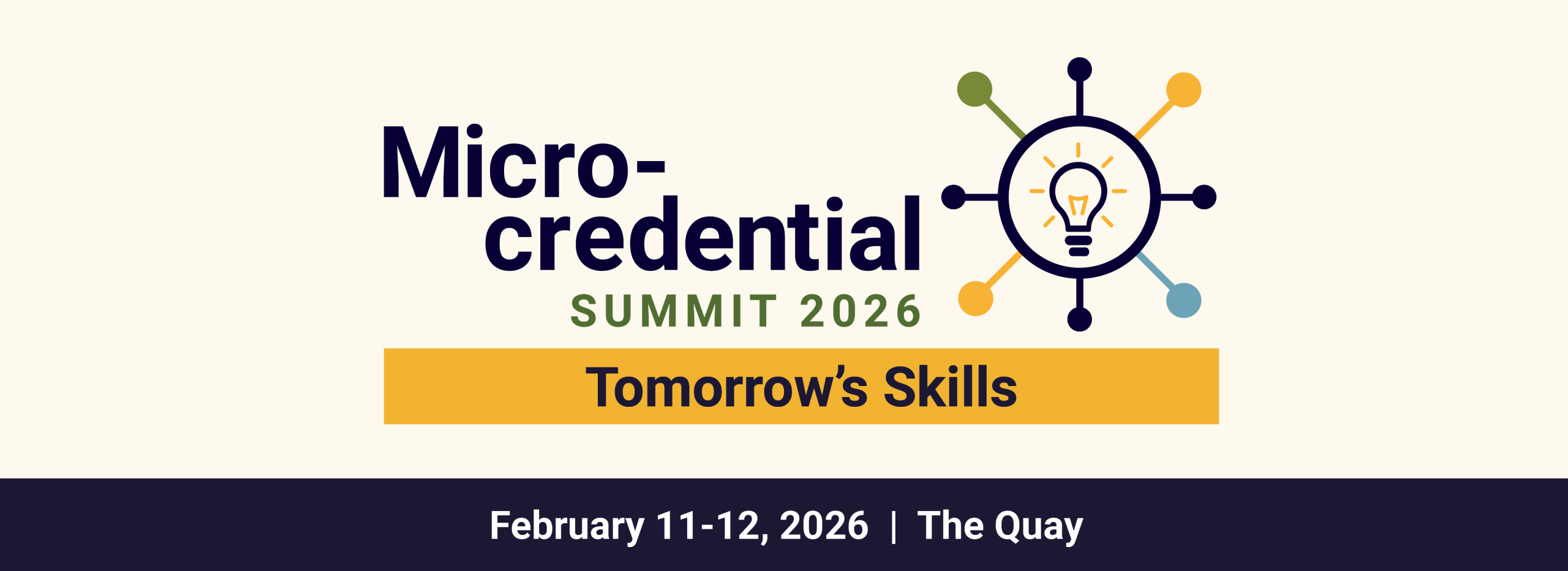TESS 2025 Pre-conference Webinars
Join us for our virtual TESS 2025 pre-conference webinar series. All webinars will have live audio translation, in French or English, and can be accessed online, so you can enjoy TESS 2025 content from the comfort of your home. Please note that there is one Zoom registration link for all three webinars.
Upcoming Virtual Webinars
Rediscovering Open Education for a Resilient Future
Postsecondary institutions across Canada are rapidly adjusting to economic scarcity as a result of changes to international student recruitment and doing this within the broader complexities of our current world moment where we need to support learning across a lifetime of uncertainty, and with diminishing resources. It is has become abundantly clear (if it wasn’t already) that business-as-usual operating models are no longer fit for purpose and won’t support us to meet the challenges ahead. Compounding this is a tendency towards historical amnesia and constant reinvention; often the answers we need are already out there waiting to be rediscovered.
This talk will outline the ways in which various elements of the open education ecosystem are effective and innovative approaches that we can use to meet some of these big challenges head-on, and (I hope) provide some inspiration to keep us moving forward.
Moderated by:
Dani Dilkes,
Educational Developer, Digital Learning,
Western University
Cortney
Hanna-Benson,
Associate Director,
Digital Learning,
Western University
Time:
10:00 am to 10:30 am
Cultivating Generative AI Pedagogical Reflection Through the Generative AI Challenge and Multidisciplinary Knowledge Building
This session introduces a responsive, holistic, and interdisciplinary approach to the complexity of generative AI: Western’s Generative AI Challenge. This series of weekly posts explores different facets of generative AI and is designed for anyone seeking to deepen their AI-awareness and make informed decisions about if and how to engage with generative AI in their teaching, work, or studies. The Challenge offers a low-barrier, high-impact professional development experience that supports the university community in exploring AI, reflecting on pedagogical values, and engaging in nuanced conversations about generative AI’s impact on higher education and society broadly. The design of this series acknowledges and supports the redistribution of expertise across disciplinary roles, valuing the perspectives of faculty, staff, and students equally. In this session, we will share the design and structure of the Generative AI Challenge, highlighting how it scaffolds reflection and fosters interdisciplinary dialogue. The Challenge can be a catalyst for thoughtful engagement with generative AI while creating space for possibilities of both adoption and resistance. We will conclude with key takeaways, including lessons learned, participant feedback, and practical strategies for adapting the Challenge to other institutional contexts.
Moderated by:
Dr. Andre De Freitas,
AI Architect & Education Strategist, EdVisingU
Adesh Shah
Lambton College, Manager, Digital Transformation Lab and Artificial Intelligence for Advanced Manufacturing Site
Suzy Lim
Digital Program Lead, eCampusOntario
Time:
10:35 am to 11:00 am
Bridging Ontario Businesses and Academic Institutions: Lambton College and EdVisingU Partnership on OCIP Innovation Story
Join Adesh Shah of Lambton College and Dr. Andre De Freitas, Founder and CEO of EdVisingU, as they share the innovation story behind StudentLink Ontario—an AI-powered platform designed to address Ontario’s 3 billion dollar aggregated postsecondary education sector deficit through digital transformation, operational efficiency, and new revenue generation.
Developed through the eCampusOntario Collaborative Innovation Platform (OCIP) Innovation Challenge, this collaboration demonstrates how partnerships between Ontario colleges and emerging education technology enterprises can create scalable, sustainable impact. StudentLink Ontario leverages advanced artificial intelligence, automation, and data integration to unify student information, streamline funding access, and strengthen institutional operations—delivering a projected 655 million dollars in sector-wide savings and generating new revenue streams within its first two years of implementation.
Presented to the Higher Education Quality Council of Ontario (HEQCO), the Council of Ontario Universities (COU), and the Ministry of Colleges and Universities (MCU/MCURES), the project is now advancing into the grant and partnership development stage. StudentLink Ontario exemplifies how collaboration between academia, government, and the private sector can stabilize and modernize Ontario’s higher education system while creating a data-driven foundation for innovation, accountability, and student success.
Moderated by:
Dr. Rajiv
Jhangiani
Vice Provost,
Teaching and
Learning,
Brock University
Panelists:
Dr. Karen
Louise Smith
Associate Professor, Brock University
Matt Clare
Director, Technology Enabled Learning,
Brock University
Chelsea Takalo
Associate
Vice-President, Equity, Diversity and Inclusion, Brock University
With visual notetaking by:
Giulia Forsythe
Director, Teaching and Learning Brock University
Time: 2:00 pm to 3:00 pm
Reflections from Brock University on our institution’s Ethical Framework for Educational Technologies
In the spring of 2025, the Senate at Brock University approved and adopted an Ethical Framework for Educational Technologies. The framework includes eleven ethical considerations: 1) access and equity, 2) accessibility, 3) algorithmic bias, 4) care and wellbeing, 5) data security and privacy, 6) design justice, 7) digital literacy, 8) environmental impact, 9) Indigenous rights, 10) intellectual property rights, and 11) operational sustainability. The eleven considerations contained in the framework were developed after various consultative activities were conducted in committees and with individuals with relevant expertise within the institution. This panel will be moderated by the institutional champion behind the framework. The panel will bring together diverse campus voices to convene a conversation to reflect upon both the creation and future implementation of the framework. We aim to reflect upon a range of issues, including how we can better enact institutional values, iterate pedagogically, adapt procurement practices and strive towards halting the harms students could experience when using educational technologies.
The Technology and Education Seminar and Showcase is made possible with funding by the
Ministry of Colleges, Universities, Research Excellence and Security.
The views expressed at this event are not necessarily reflective of those of the funder.




